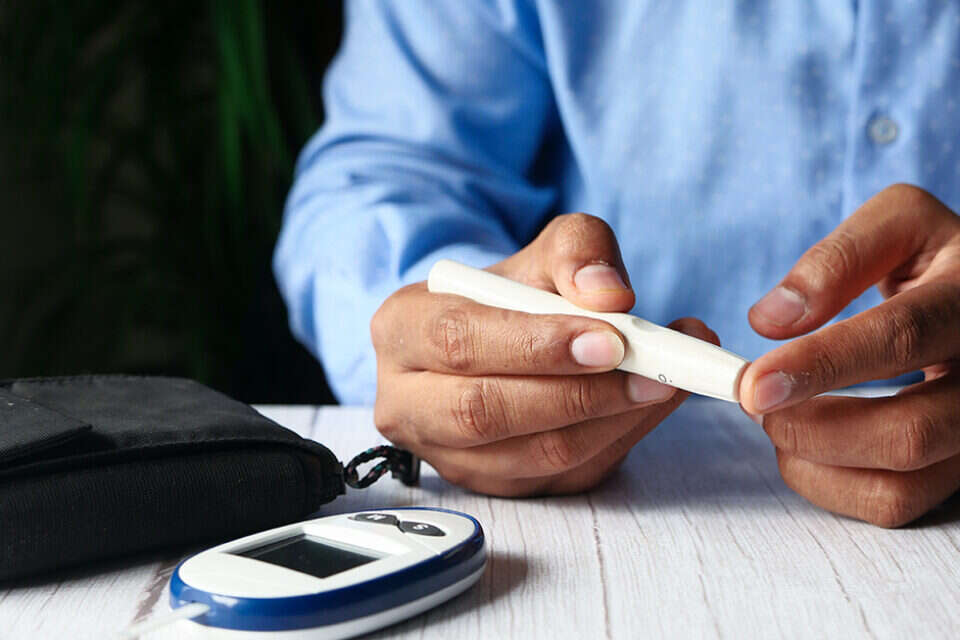High blood sugar levels are associated with severe morbidity and mortality from the corona virus.
This emerges from a new study conducted by researchers at the United Health Insurance Fund, in collaboration with the Hebrew University, the Lev Academic Center and the Hadassah Medical Center.
The study found that sugar levels higher than normal in the human body, even among people who are not diagnosed with diabetes, are associated with an increased risk of severe morbidity and mortality from coronary heart disease.
In patients with a diagnosis of diabetes, lower-than-normal sugar is associated with an increased risk of complications from the virus.
The study was published late last month in the journal PLOS ONE.
"The aim of the study was to identify risk factors for severe illness in Corona that can be treated ahead of time, so that we can raise awareness of those factors among the general public," explains Dr. Michal Shauli-Aharonov of the Hebrew University School of Public Health and the Department of Industrial Engineering and Management. Lev, who led the study together with Dr. Asher Shafrir, an expert in internal medicine at the United Health Insurance Fund and Hadassah Hospital.
"Locating factors related to serious illness and even death, God forbid, is also important in order to shed light on at-risk populations, in order for them to be given priority in administering vaccines."
The researchers conducted a study among all members of the United Health Insurance Fund over the age of 18, who had a positive corona test between March and October 2020. In total, there were 37,121 insured with a positive corona test (16.7%), 707 of them critically ill (1.9%) - of whom 244 died (34.5 %), 188 were hospitalized in the intensive care unit (26.5%), and 538 were hospitalized for 10 days or more (76%).
Severe infection was defined by the researchers as hospitalization in intensive care and / or at least ten days of hospitalization and / or death.
Patients with severe infection were older, had a high BMI, were diagnosed with diabetes, and / or had hypertension.
The normal blood sugar level in an adult or an adult woman is 70 to 100 mg / dL of blood sugar, after an eight-hour fast.
In the present study, a significant association was found between fasting blood sugar in the blood test that preceded infection and the risk of severe coronary heart disease.
In fact, the nature of the relationship among diabetics was different from that found among patients with no diagnosis of the disease.
In patients without a diagnosis of diabetes, the higher the sugar levels, the greater the risk - patients with fasting sugar values (hereinafter: "sugar values") 105-125 mg / dL were 1.5 times more likely to have severe coronary heart disease than patients with Sugar lower than 105.
Patients with sugar between 125-140 mg / dL were twice as likely to develop corona complications than patients with sugar below 105.
In patients with a diagnosis of diabetes, the highest risk was actually in patients with low sugar values, below 80 mg / dL (1 in 4), and the lowest risk (1 in 12) was in patients with sugar values 106-125 Mg to dl.
"Therefore, emphasis should also be placed on preventing the occurrence of hypoglycemia (a condition in which the blood sugar level drops drastically from the normative level) in populations that are at risk for severe coronary heart disease," states Dr. Orit Bernholtz-Golchin, a doctor at Shaare Zedek and director of a clinic District Diabetes in United.
In conclusion, both the diagnosis of diabetes and an increase in sugar levels are significant risk factors for the development of severe coronary heart disease.
The researchers recommend that special attention be paid to patients without a diagnosis of diabetes but with fasting sugar or high HbA1C glycated hemoglobin values, and also to diabetics with low sugar levels, who are also at increased risk for coronary complications.
The researchers emphasize that it is worthwhile to go out and check blood sugar values precisely during this period, when there is a recurrence of the epidemic in Israel, even if there is no fear of high or low blood sugar values.











